[Updated] UP Mindanao Represents Region XI in DOST-PCAARRD’s NSAARRD 2021
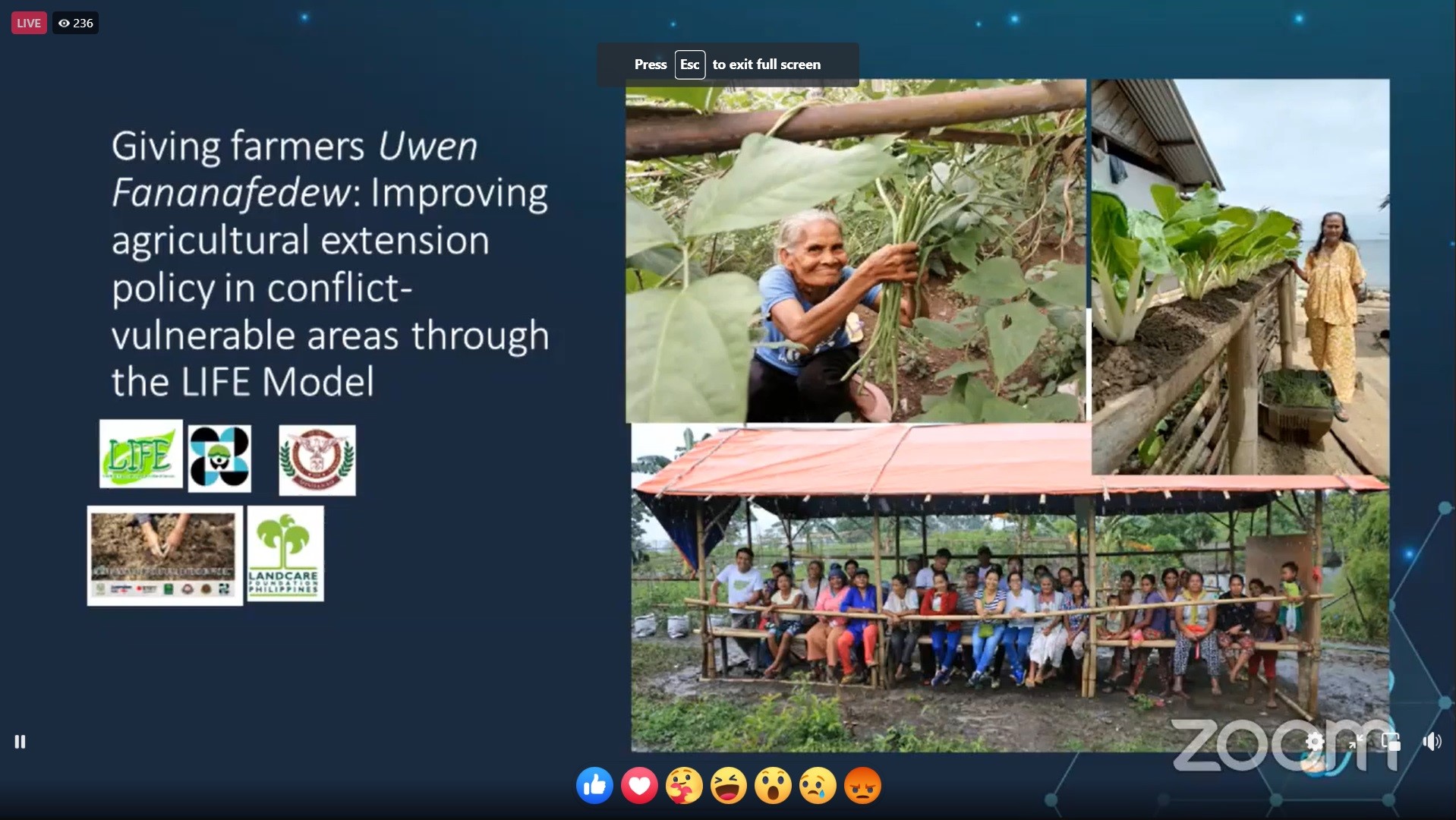
Update: A research paper from UP Mindanao was awarded first prize in the National Symposium on Agriculture, Aquatic and Natural Resources Research and Development (NSAARRD) held online on 22 October 2021. "Giving Farmers uwen fananafedew: Improving Agricultural Extension in Conflict-Vulnerable Areas through the Livelihood Improvement through Facilitated Extension (LIFE) Model" won in the Best Development Papers category and was awarded on 29 November 2021. The LIFE Model is an extension modality for conflict-vulnerable areas that was implemented in three barangays in Surallah, South Cotabato Province, Datu Abdullah Sangki and Ampatuan in Maguindanao, and Ipil in Zamboanga Sibugay. The research and extension program forged 17 memoranda of agreement with LGUs and institutions in the areas.
Read the news report here: http://www.pcaarrd.dost.gov.ph/home/portal/index.php/quick-information-dispatch/3865-mindanao-focused-research-awarded-best-r-d-papers?fbclid=IwAR2GKcVlclqC5ZE3U3lrh2EtN34_StbtgRoUQdi67eYCJWX1Z-QrpD7apqs
###
The Department of Science and Technology – Philippine Council for Agriculture, Aquatic and Natural Resources Research and Development (DOST-PCAARRD) held its National Symposium for Agriculture, Aquatic, and Natural Resources Research and Development (NSAARRD) on 22 October 2021. Three papers each were presented in the Research and Development categories, respectively. Before the top three papers in each category were identified, papers on R&D conducted in the Philippines during the last two years were submitted as entry/ies and evaluated by a screening committee.
The University of the Philippines Mindanao entry entitled “Giving Farmers Uwen Fananafedew: Improving Agricultural Extension Policy in Conflict-Vulnerable Areas through the Livelihood Improvement through Facilitated Extension (LIFE) Model” presented by Dr. Emma Ruth V. Bayogan competed in the Development Category. The paper is a product of the DOST-PCAARRD-funded program entitled “Enhancing Livelihood Opportunities in Conflict-Vulnerable Areas in Mindanao through the LIFE (Livelihood Improvement through Facilitated Extension) Model”, which aimed to establish improved, sustainable, and resilient community-based livelihoods for the conflict-vulnerable areas in Agriculture, Aquatic and Natural Resources (AANR) sector in Mindanao. The program ran from December 2017 to April 2021 and was implemented in Surallah, South Cotabato; Datu Abdullah Sangki and Ampatuan, Maguindanao; and Ipil, Zamboanga Sibugay. The paper won Best Paper in the Development Category during the Southern Mindanao Agriculture, Aquatic and Natural Resources Research and Development Consortium’s Regional Symposium on Research Development and Extension Highlights in Davao City on 29 September 2020.
UP Mindanao’s paper went against Benguet State University’s “Disaster Reduction of Climate Change Impacts on Vegetable Terrace Farms in Benguet” presented by Prof. Alexander W. Fagyan and Central Luzon State University’s “Sustainable Homegrown Forages and Complete Nutrient Diet Towards Enhancing Growth and Milk Production of Dairy Buffaloes in Nueva Ecija and San Agustin, Isabela” presented by Dr. Daniel L. Aquino.
The judges were: Dr. Domingo E. Angeles of the Philippine Fruit Association; Dr. Edna A. Anit of the Crop Science Society of the Philippines; Dr. Feliciano G. Calora Jr. of DOST-PCAARRD; Dr. Danilo C. Cardenas of the Philippine Agricultural Economics and Development Association, Inc.; and Dr. Edwin C. Villar, CESO IV, of the Philippine Society of Animal Science.
Results will be announced during DOST-PCAARRD’s S&T Awards and Recognition on 29 November 2021.

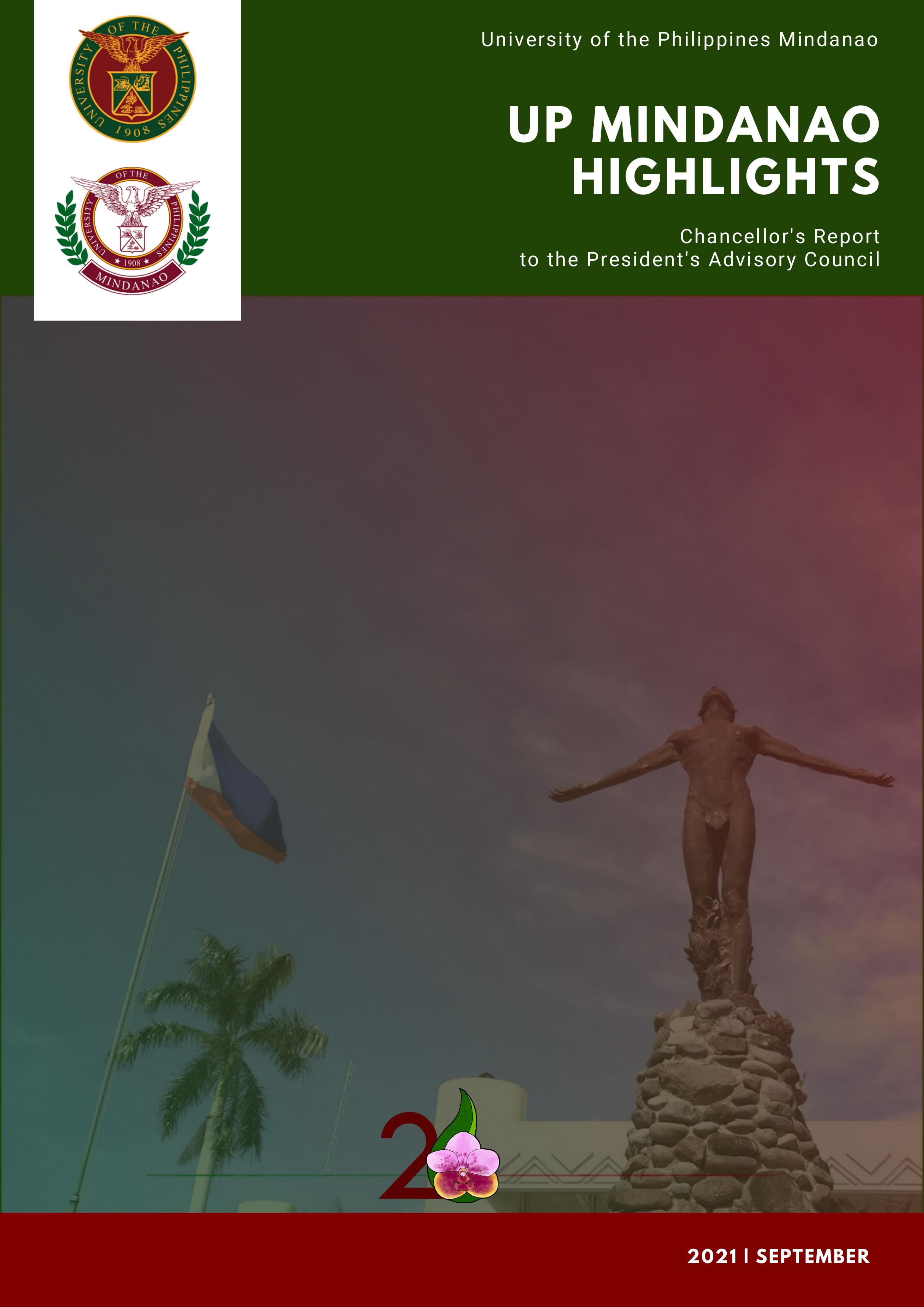 The COVID-19 Tracker (
The COVID-19 Tracker (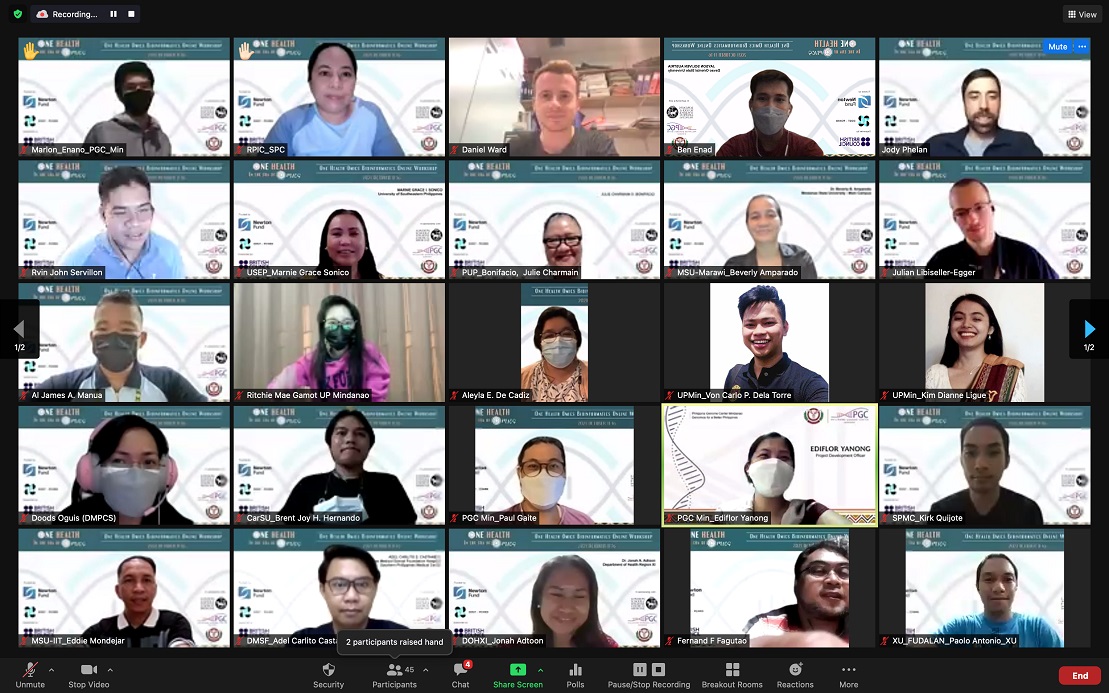
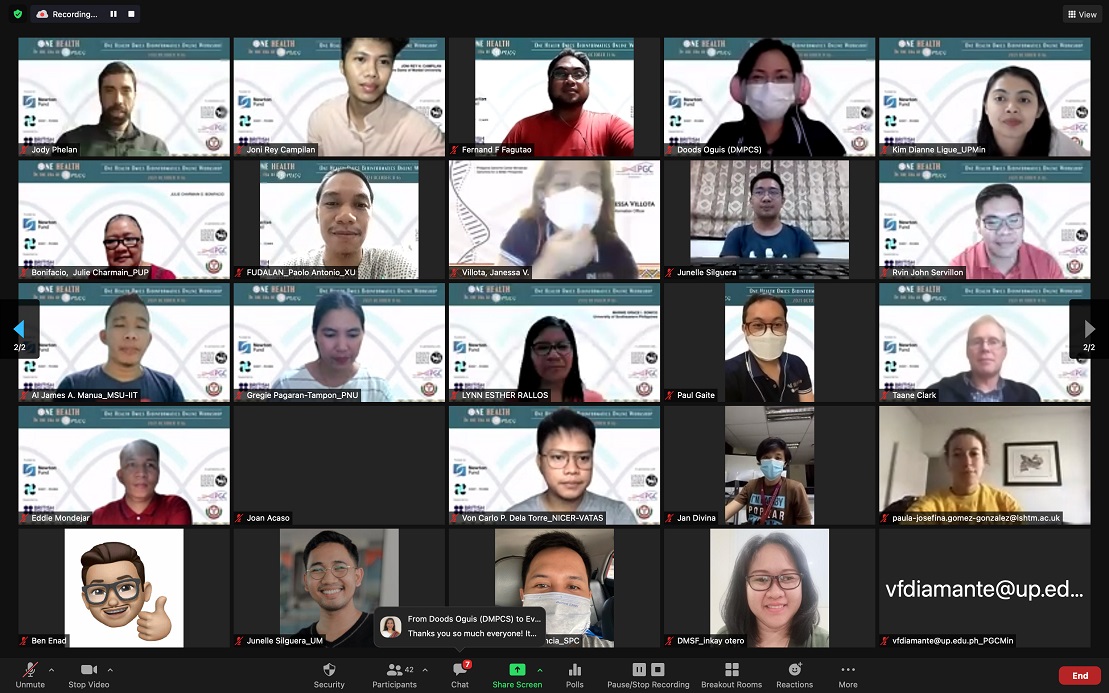
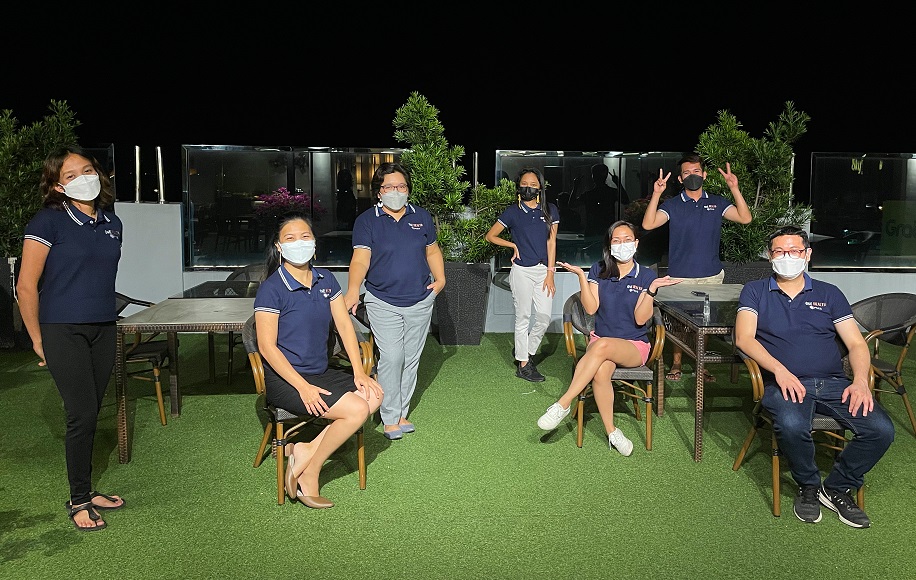
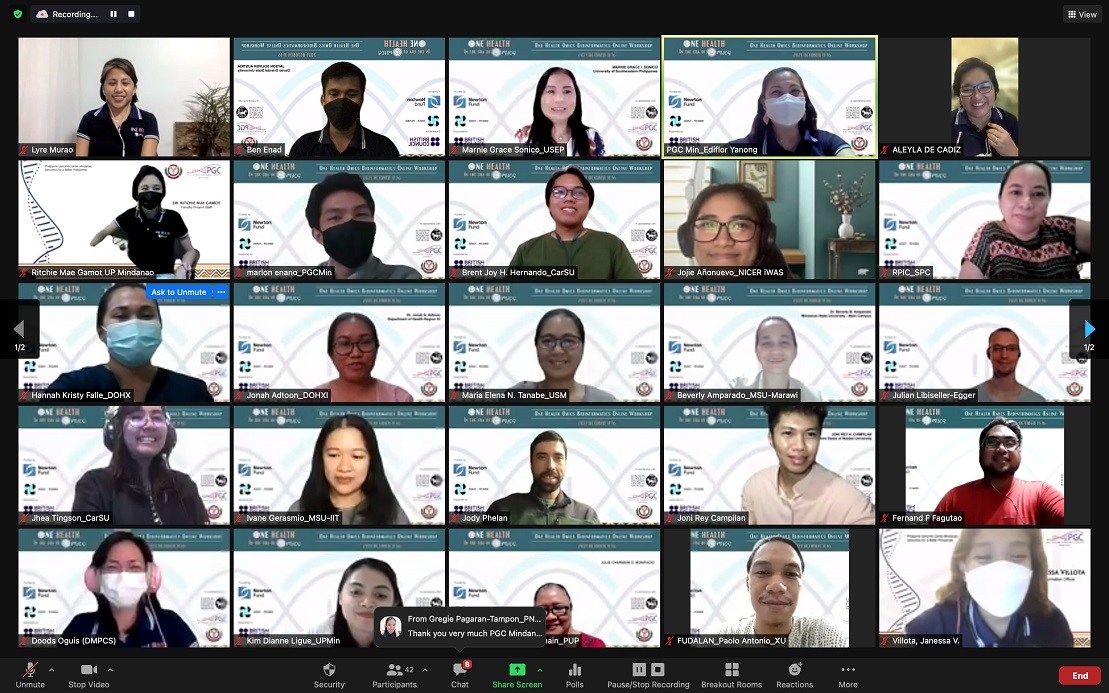
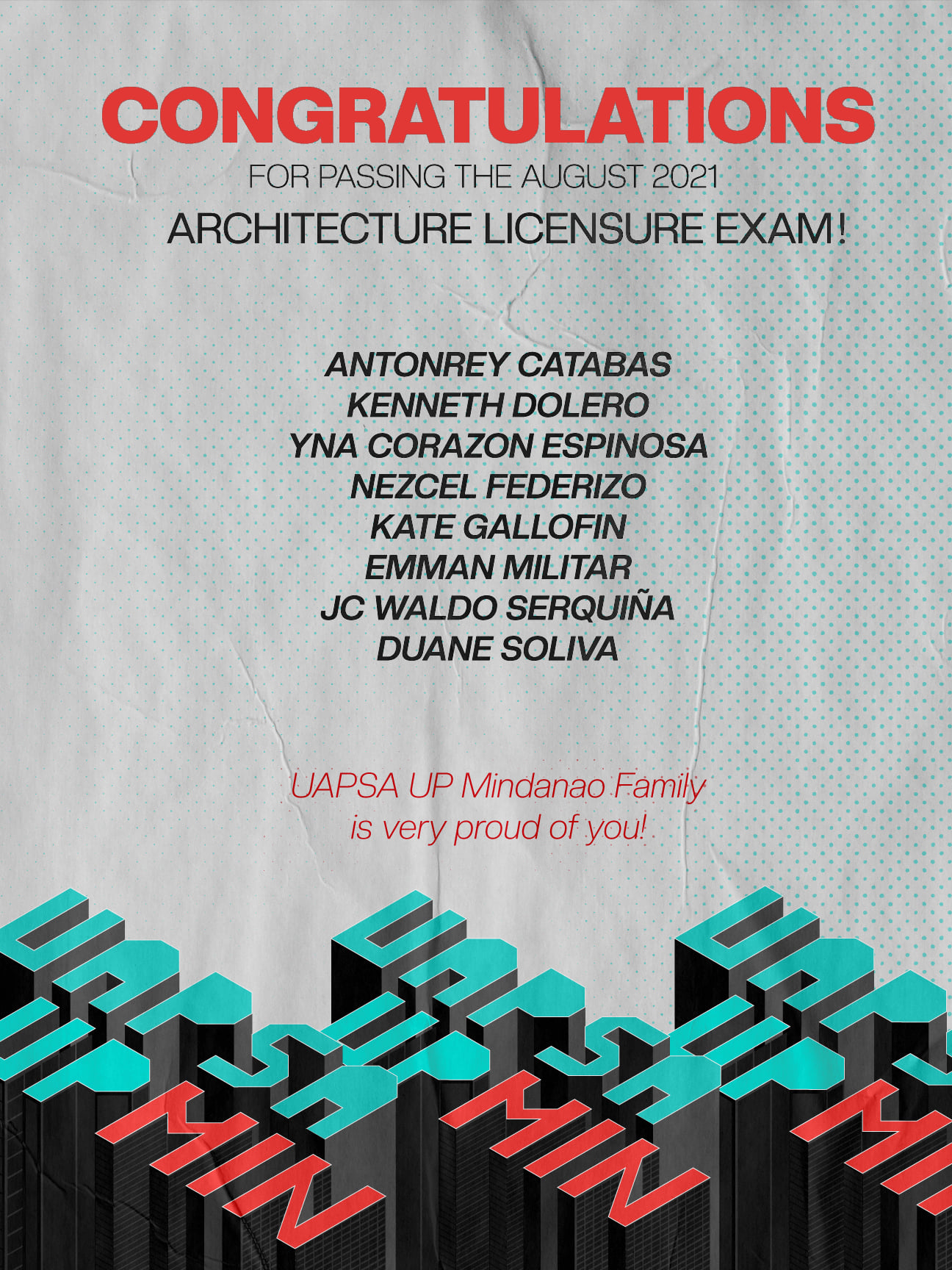 The UP Mindanao takes pride in the 100%-passing performance in the Licensure Exam for Architects of the following BS Architecture graduates:
The UP Mindanao takes pride in the 100%-passing performance in the Licensure Exam for Architects of the following BS Architecture graduates: